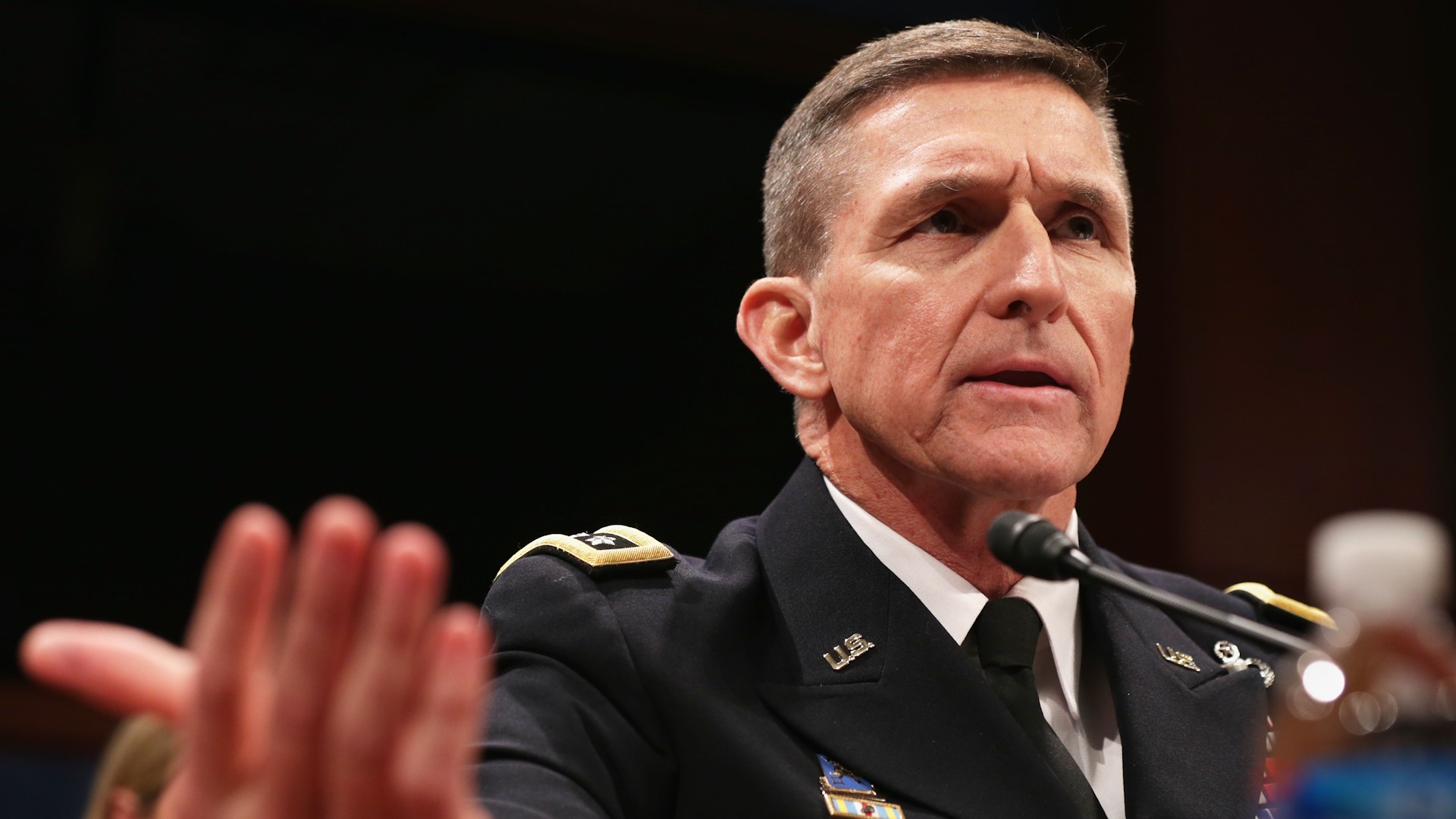Photo of January's Women's March by Andrew Lichtenstein/Corbis via Getty Images
Before the 2016 election, 31-year-old Seattle resident Iga Kozlowska didn't think too much about politics. "I voted every four years, kind of haphazardly," she said. "I never really connected to politics in that way. It wasn't personal."Then Donald Trump won, and Kozlowska was seized by a visceral reaction. "It was almost like this involuntary urge," is how she described it. When she read in the New York Times about Indivisible, a liberal group founded by former congressional staffers to help people put pressure on political leaders, she immediately found a local chapter on Facebook and signed up."In less than 48 hours I found myself organizing a rally," she told me. "I'd never attended a rally, let along organized one. I was like, 'I guess I need a bullhorn. Where do I get one?'"Trump's ascension to the White House has prompted a wave of activism from people who have been jolted into participation by his unexpected win. What often goes unsaid is that most of these new activists are women. That includes unmarried women like Kozlowska, a demographic that has the potential to be a growing force in US politics.Unmarried women tend to face more financial challenges than other groups, making them particularly vulnerable to cuts to the social safety net proposed by the Trump administration and congressional Republicans.A recent report from the Voter Participation Center found out that their numbers are growing. There are now slightly more unmarried than married women among eligible voters in the country. But in 2016, only 57 percent of eligible unmarried women voted, compared with 70 percent of married women. That's the kind of participation gap that could swing close elections like the 2016 presidential contest.A key question , as Democrats look to retake state legislatures, Congress, and eventually the presidency in 2020, is whether single women can power them to victory.
Watch: Michael Flynn regretted the "lock her up" speech almost immediately
Kozlowska's story is an example of how people have been inspired not just to oppose Trump but to get involved at the local level. Just a few months ago, she said, she didn't even know when congressional or mayoral elections happened. Now, she's met almost every candidate running for city council from her area this year, as well as a number of mayoral candidates.But the category of unmarried women is a broad one, and Kozlowska occupies a particular corner. As a recent graduate of a PhD program who's in a committed romantic partnership, in some ways she has more in common with her fellow Indivisible activists who are older and married than with many single women.The VPC report notes that one in four unmarried women are single mothers, and that single women overall make less money and are more often unemployed than their married counterparts. Really changing the political landscape would take a wide range of unmarried women, not just relatively privileged ones like Kozlowska.Jan E. Leighley, a political scientist at American University, said that younger, unmarried people—male and female—tend to be more mobile and less engaged in their communities. If they move from one place to another, they have to re-register to vote, and if politicians want to knock on their doors, they may not know where to find them.A more settled life also encourages voting in other ways, Leighley said. People who are engaged with schools, churches, and community groups tend to vote more."The more you have coherent groups that are politicizing, the more likely people in those groups will see their interests furthered, their identity strengthened as part of that group, by going out to vote," she said.Donald P. Green, a political scientist who studies voter turnout at Columbia University, said that lower-income and less-educated Americans are also more likely to be single, and less likely to vote. And he said there's no guarantee that political policies that hurt a particular demographic will encourage the affected people to get out and vote."Issues that make people concerned and active can also make them concerned and withdrawn," he said. "One [response] is to say, 'Politics is a dirty business' and withdraw from it.""It encourages, or mobilizes, older people to participate," she said. "I think it's still important that there be formal mobilization. You can't just assume that outrage in July of 2017 is going to translate to people being at the polls in special elections in the fall of 2017, or in 2018."For some women, Indivisible and groups like it are playing the role of a social, community organization that reinforces its members' political work as part of an identity. Rhea Wyss, a graphic designer and organizer with Indivisible Kansas City, said the women who founded the chapter went from almost no political involvement to deep engagement in the two months between the group's founding and mid-March, when she joined up."They had already had multiple town halls," she said. "I'm dumbfounded by how much they got done."Like many other Indivisible chapters, the one in Kansas City is largely made up of married, middle-class women. Wyss said the group has been collaborating with low-wage workers in support of the Fight for 15 movement. But she said Indivisible organizers and members are the kinds of women who can slip out from their white-collar office jobs at lunch to join a rally.But progressive groups are continuing to fight back. Laurie Couch, spokeswoman for the Ohio Organizing Collaborative, which brings together community organizing efforts, unions, and faith-based groups, said she's seen an upsurge in interest. In particular, she said, more people are joining in to work for racial justice in Columbus and to get involved in the fight over healthcare."People are angry, and I think women in particular are stepping into leadership roles on local organizing campaigns because they see the direct connection between making change in the community and improving their quality of life," she said.Couch added that the group makes a particular effort to draw that connection. Rather than simply encouraging people to register and vote, it works to bring neighbors and families together around local issues."I think that's where you really see people become empowered," she said. "Organizing, protesting at local level. That's where people experience their first confrontations with power and their first victories."Follow Livia Gershon on Twitter.
Advertisement
Watch: Michael Flynn regretted the "lock her up" speech almost immediately

Kozlowska's story is an example of how people have been inspired not just to oppose Trump but to get involved at the local level. Just a few months ago, she said, she didn't even know when congressional or mayoral elections happened. Now, she's met almost every candidate running for city council from her area this year, as well as a number of mayoral candidates.
Advertisement
Advertisement
For example, Green said, despite intense concern about Trump in many Latino communities, 2016 turnout among people with Spanish last names in states including Wisconsin and Pennsylvania was remarkably low."The tipping point tends to involve when your friends and family and your coworkers and co-congregants are responding to this issue by saying 'let's get involved,'" he said.Green said candidates and political parties can't create community buy-in just by running some ads around election time. Organizations need to invest in face-to-face work with people who might not normally turn out to vote. But in reality they usually spend more energy cultivating groups that are known for high turnout, creating a vicious cycle in which some people remain outside the political system."The parties have a very episodic connection to those types of voters," Green said. "Maybe they'll pay attention to them right at the very last minute, but it's not common for parties and candidates to have sustained engagement with this part of the population."Leighley noted that one population that's become significantly more involved in politics in recent decades thanks to a concerted effort is older people, who have been moved to vote en masse by the AARP."You can't just assume that outrage in July of 2017 is going to translate to people being at the polls in special elections in the fall of 2017, or in 2018."
Advertisement
Disparities in voting are also exacerbated by laws making it more difficult to register and vote, which states often implement in ways that are particularly harmful to low-income and minority voters. Right now, many on the left are worried that the Trump administration seems to be doubling down on this kind of voter repression in an effort to make it harder for Democrats to win elections.
Advertisement
